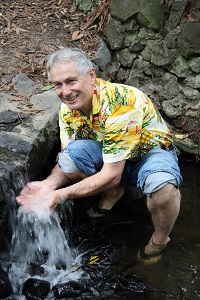 Rich Saykally, (Introductory lecturer), University of Berkeley, United States
Rich Saykally, (Introductory lecturer), University of Berkeley, United States
Richard Saykally is a Professor of the Graduate School at the University of California-Berkeley. Born in Rhinelander, Wisconsin and educated at UW-Eau Claire and UW-Madison, Saykally has been a professor at the University of California, Berkeley since 1979. He and his students have pioneered important advances in spectroscopy, including velocity modulation spectroscopy of ions, terahertz laser vibration-rotation-tunneling spectroscopy of clusters, infrared photon counting spectroscopy, cavity ringdown spectroscopy, and X-ray spectroscopy of liquid microjets. These have permitted the first detailed study of important textbook molecules, including the hydronium (H3O+), hydroxide (OH-) and ammonium (NH4+) ions, as well as small water clusters and carbon clusters.
Recent work includes the spectroscopic determination of a universal water force field via the study of water clusters, the development of femtosecond nonlinear optical molecular imaging methods applied to single nanowire lasers and biological systems, femtosecond UV SHG/SFG studies of aqueous interfaces, and soft X-ray spectroscopy of liquids and liquid surfaces.
A co-author of over 400 publications that have been cited over 50,000 times (H index > 100), the recipient of over 78 honors and awards from 15 different countries, Saykally is a member of the National Academy of Sciences and the American Academy of Arts and Sciences, and has received the E.O. Lawrence Award in Chemistry from the U.S. Department of Energy, the Hinshelwood Lectureship from Oxford University, the Inaugural International Solvay Chair in Chemistry from the Solvay Institutes of Belgium, the Peter DeBye Award in Physical Chemistry from the ACS, the J.C. Bose Lectureship from IACS-Kolkata, and the Faraday Lectureship Prize from the UK Royal Society of Chemistry. He is a UC-Berkeley Distinguished Teacher, and has been active at the national level in science education. Over 150 students and postdocs have trained under his direction, many of whom hold prominent positions in academic, government, and industrial institutions.
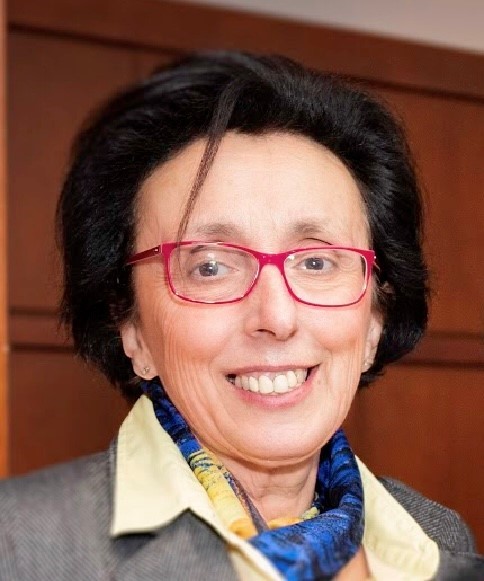 Giulia Galli (Closing remarks), University of Chicago, United States
Giulia Galli (Closing remarks), University of Chicago, United States
Giulia Galli is the Liew Family professor of Electronic Structure and Simulations in the Pritzker School of Molecular Engineering and the Department of Chemistry at the University of Chicago. She also holds a Senior Scientist position at Argonne National Laboratory, where she is the director of the Midwest Integrated Center for Computational Materials
She is an expert in the development of theoretical and computational methods to predict and engineer material and molecular properties using quantum simulations.
Prior to joining UChicago, she was Professor of Chemistry and Physics at UC Davis (2005-2013) and the head of the Quantum Simulations group at the Lawrence Livermore National Laboratory (LLNL, 1998-2005).
She is an elected member of the US National Academy of Sciences, the American Academy of Arts and Science and the International Academy of Quantum Molecular Science. Her recognitions include the Rahman Prize in Computational Physics and the David Adler Award in Materials Physics from the American Physical Society, the Theory Award from the Materials Research Society, the Feynman Nanotechnology Prize in Theory and the Tomassoni-Chisesi prize. In addition she recently received the Lifetime Achievement Award by the Italian Scientists and Scholar of North America Foundation.
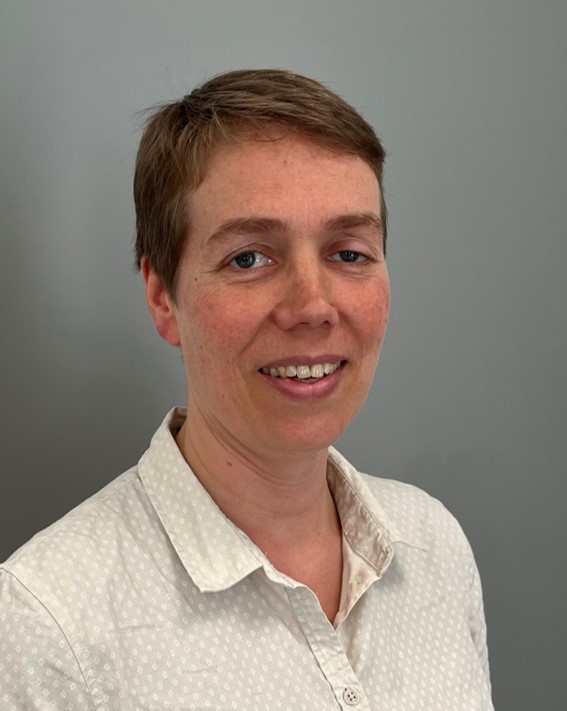 Ellen Backus, University of Vienna, Austria
Ellen Backus, University of Vienna, Austria
Ellen Backus is professor for physical chemistry at the University of Vienna since 2018. Her research
focuses on the molecular structure and (ultrafast) dynamics of various aqueous interfaces by using surface-specific vibrational spectroscopy. She obtained her PhD in 2005 at the Leiden University. After postdoctoral research at the University of Zurich and at AMOLF in Amsterdam, she started in 2012 as a groupleader at the Max Planck Institute for polymer research in Mainz.
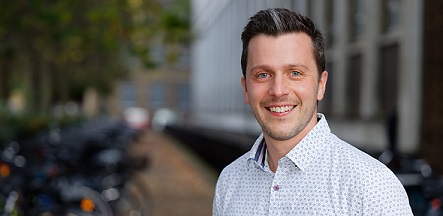 Stephen Cox, University of Cambridge, United Kingdom
Stephen Cox, University of Cambridge, United Kingdom
I obtained my PhD in 2014 from University College London under the guidance of Angelos Michaelides, where I used molecular simulations to further our understanding of heterogeneous ice nucleation. From 2015-2017, I undertook post-doctoral research with the late Phill Geissler at Lawrence Berkeley National Laboratory, in which I used theory and simulation to understand ion solvation, both in bulk and interfacial water. In 2017, I was awarded a research fellowship from the Royal Commission for the Exhibition of 1851, which I held in Cambridge. Since October 2021, I have held a Royal Society University Research Fellowship in the Yusuf Hamied Department of Chemistry, University of Cambridge. My research focuses on trying to understand how solution environments affect the structure and dynamics of materials.
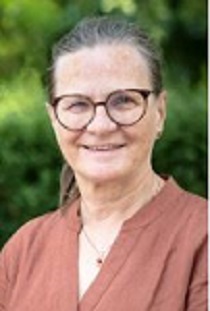 Ulrike Diebold, TU Wien, Austria
Ulrike Diebold, TU Wien, Austria
Ulrike Diebold is a professor of surface physics at the Vienna University of Technology (TU Wien) in Vienna, Austria. She conducts research in experimental surface science with an emphasis on metal oxide surfaces. She is particularly interested in the atomic-scale properties of these complex materials, and in unraveling their (defect)structure/reactivity relationship. The main tool, Scanning Probe Microscopy, is complemented by area-averaging surface spectroscopies and first-principles calculations. Her research on fundamental interactions between water and oxide surfaces is supported by an ERC Advanced Grant.
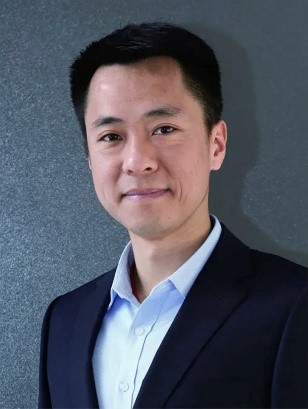 Ying Jiang, Peking University, Beijing, China
Ying Jiang, Peking University, Beijing, China
Ying Jiang is a Boya Distinguished Professor of Peking University. He received his PhD from Institute of Physics, Chinese Academy of Sciences (CAS) in 2008. After working as a Postdoctoral Associate in University of California, Irvine (2008-2010), he joined International Center for Quantum Materials, Peking University as a tenure-track assistant professor, and was promoted to a full professor in 2018. He is the founding director of Research Center for Light-Element Advanced Materials of Peking University. Jiang serves on the Editorial Boards or Editorial Advisory Boards of Research, Journal of Physical Chemistry, Journal of Chemical Physics, Advanced Quantum Technologies, Chemical Physics, Chinese Physics Letters, etc.
Jiang’s research fields are condensed matter physics and chemical physics. His research achievement covers from the innovative development of scanning probe microscopy/spectroscopy to the application of those techniques to probe and manipulate single molecules, nanostructures and low-dimensional materials with atomic precision. Recently, Jiang has opened up new possibility of understanding the structure and dynamics of water and ion hydration at interfaces with H-sensitive and non-invasive scanning probe microscopy. He has published over 70 peer-reviewed papers, including 3 in Science, 5 in Nature, and 10+ in Nature Journals. His research works were selected twice as Top-ten Science Advances in China (2016, 2018).
Selected awards include Distinguished Young Scholars of NSFC (2017), Tan Kah Kee Young Scientist Award (2018), Science and Technology Award for Chinese Youth (2018), Leading Innovative Talent in Science and Technology (2019), Fellow of American Physical Society (2019), Nishina Asia Award (2020), AAA Robert T. Poe Prize (2020), Xplorer Prize (2022).
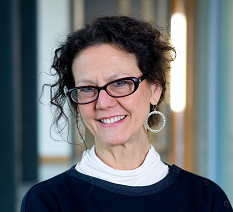 Monica Olvera de la Cruz, Northwestern University, United States
Monica Olvera de la Cruz, Northwestern University, United States
Monica Olvera de la Cruz obtained her Ph.D. in Physics from Cambridge University, UK, in 1985. She joined Northwestern University in 1986, where she is the Lawyer Taylor Professor of Materials Science & Engineering, Professor of Chemistry, and by courtesy, Professor of Physics and Astronomy and Chemical & Biological Engineering. She is the Director of the Center for Computation and Theory of Soft Materials. From 1995-97 she was a Staff Scientist in the Commissariat a l’Energie Atomique, Saclay, France, where she also held visiting scientist positions in 1993 and 2003. She has developed theoretical models to determine the thermodynamics, statistics, and dynamics of soft materials including multicomponent solutions of heterogeneous synthetic and biological molecules, and molecular electrolytes. She is a member of the American Philosophical Society, the National Academy of Sciences (NAS), the American Academy of Arts and Sciences, and a Fellow of the American Physical Society (APS). She has served in the Advisory Committees of the Department of Energy Basic Energy Science Program (2012-21) and the NSF Mathematical and Physical Science Directorate (2005-09), as well as in various committees of the National Research Council (NRC) including the Board of Physics and Astronomy (2009-15). She serves in the scientific advisory committee of the Max Planck Institute for Polymer Research, and ESPCI (École supérieure de physique et de chimie industrielles de la Ville de Paris). She has been Senior Editor for the ACS Central Science and a member of the PNAS editorial board, and a member of the Board of Trustees of the Gordon Research Conferences (2019-27).
-
Nikita Kavokine
Flatiron Institute, United States
-
Adam Willard
MIT, United States

















